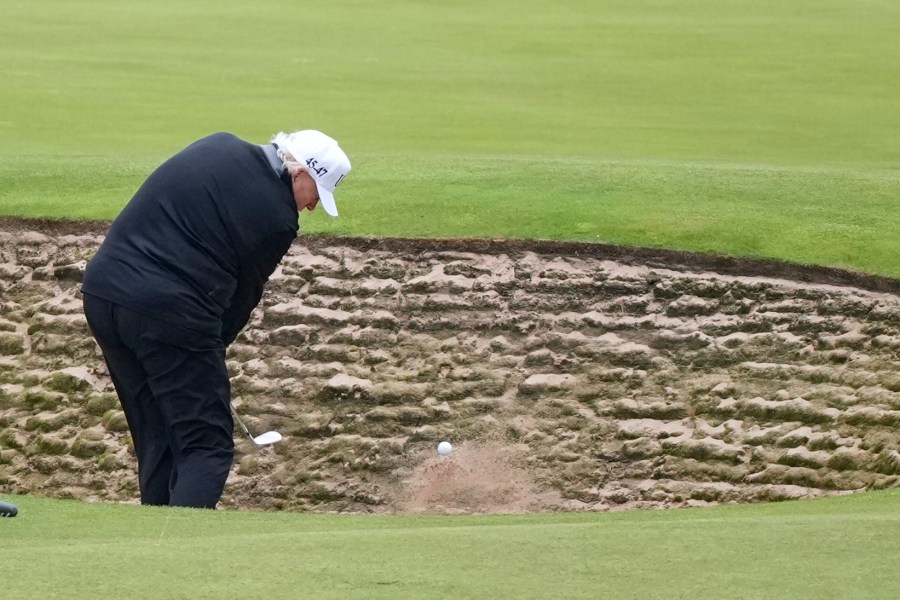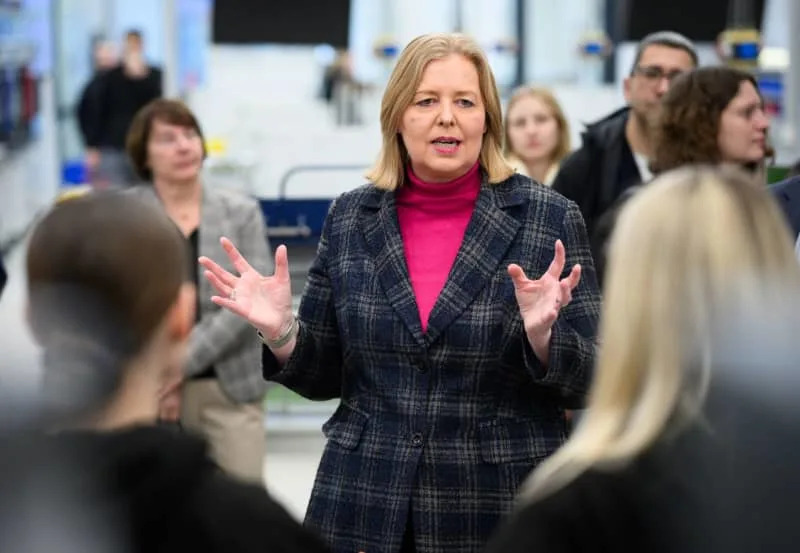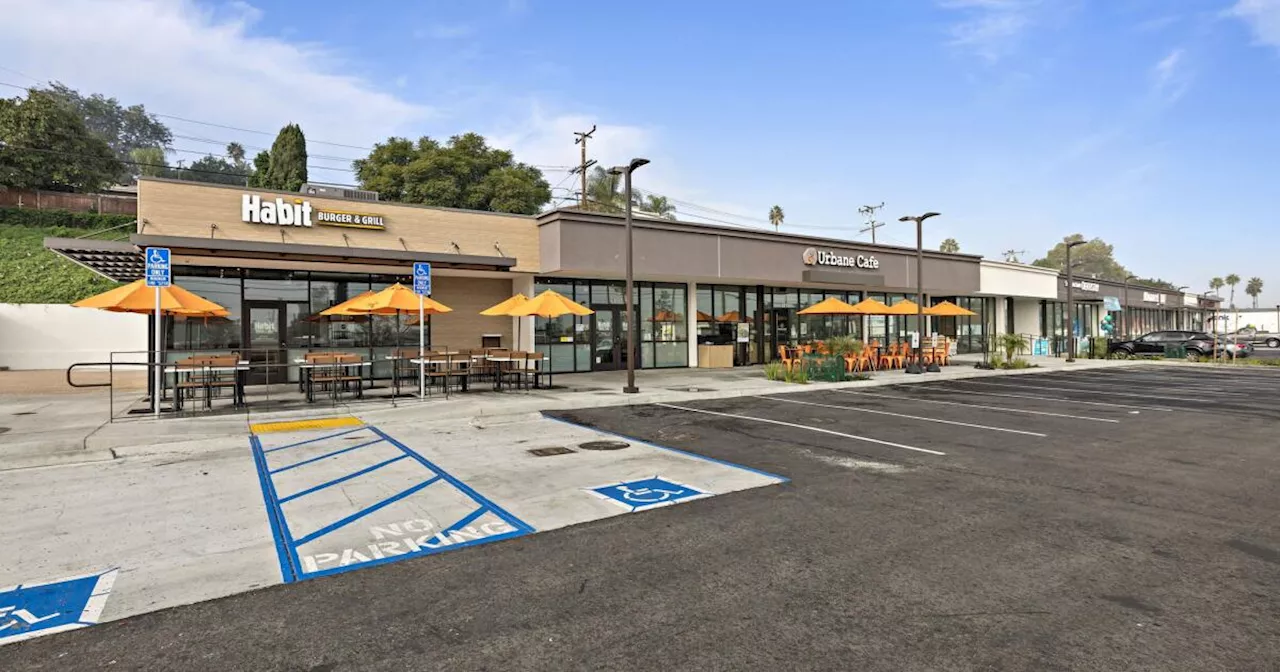
EDINBURGH, Scotland (AP) — Former U.S. President Donald Trump is currently on a five-day trip to Scotland, where he is blending work obligations with personal interests. The visit focuses on promoting his family-owned golf courses while engaging in discussions on trade with European leaders.
Trump’s itinerary includes meetings with European Commission chief Ursula von der Leyen and British Prime Minister Keir Starmer, as well as potential media opportunities with U.S. and British outlets. While the White House has refrained from labeling the trip as a vacation, it is clear that Trump’s presence at his properties near Turnberry and Aberdeen is strategically aligned with his business interests.
Promoting Family Investments
The trip features a significant personal touch, as Trump is staying at his two golf courses and is scheduled to inaugurate a third course on August 13, 2023. Notably, Trump played a round of golf at Turnberry over the weekend, a course he acquired in 2014. This aligns with a pattern of previous presidents who have utilized vacations for both personal relaxation and political engagement, though Trump’s approach is distinctly commercial.
Historically, U.S. presidents have often vacationed domestically. For example, Franklin D. Roosevelt frequently visited the Bahamas, while Harry S. Truman made Key West a notable getaway. Yet, Trump’s decision to center his trip around his family’s golf businesses distinguishes him from his predecessors.
Political analysts have pointed out that this trip appears to be another instance of Trump leveraging his presidential status for personal gain. Leonard Steinhorn, a political communication professor at American University, stated, “You have to look at this as yet another attempt by Donald Trump to monetize his presidency.” This sentiment reflects broader concerns regarding the ethics of intertwining public office with private business ventures.
Historical Context of Presidential Vacations
Throughout history, presidential vacations have often sparked debate. Teddy Roosevelt was the first sitting president to leave the U.S. while in office, embarking on a yacht trip to inspect the Panama Canal. Over the years, the locations chosen for presidential retreats have often shaped public perception and tourism, with many Americans eager to visit places associated with the presidency.
While Trump’s trip to Scotland may bolster tourism in the area, it is likely to primarily benefit his family’s financial interests. Jeffrey Engel, Director of the Center for Presidential History at Southern Methodist University, commented on this trend, stating that Trump’s priorities during leisure time reflect a shift in presidential norms. “When he thinks about how he wants to spend his free time, A., playing golf, B., visiting places where he has investments and C., enhancing those investments, that was not the priority for previous presidents,” Engel noted.
As Trump engages in this working trip, he is also navigating a complex relationship with the idea of presidential vacations. Previously, he criticized the notion of taking time off, asserting in his 2004 book, “Think Like a Billionaire,” that vacations are unnecessary for those who enjoy their work. Yet, his current actions reflect a departure from this stance, embracing a blend of leisure and business in a setting that has historical significance for U.S. presidents.
In summary, Trump’s Scottish trip illustrates a unique intersection of personal investment and political engagement. As he promotes his family’s golf enterprises, the implications of his visit extend beyond leisure, raising questions about the intertwining of public service and private interests in modern governance.






